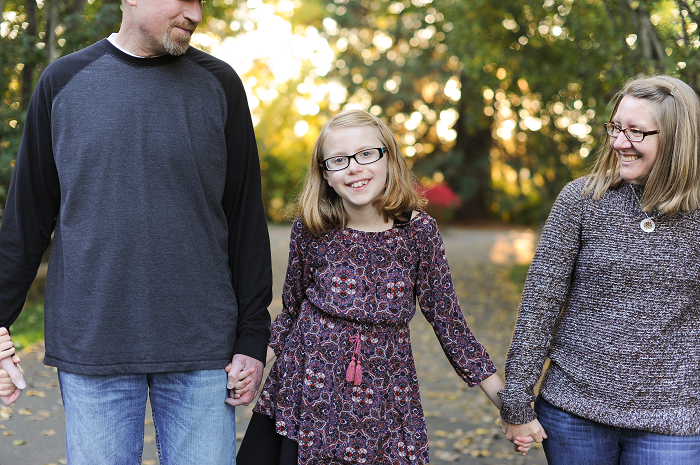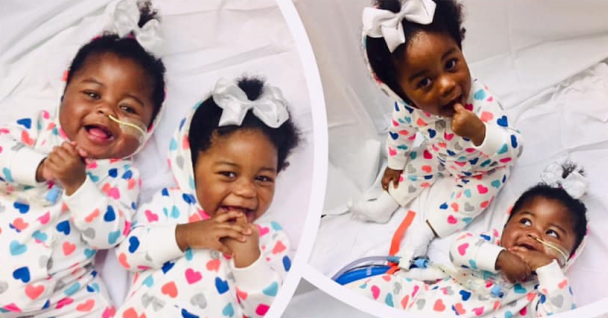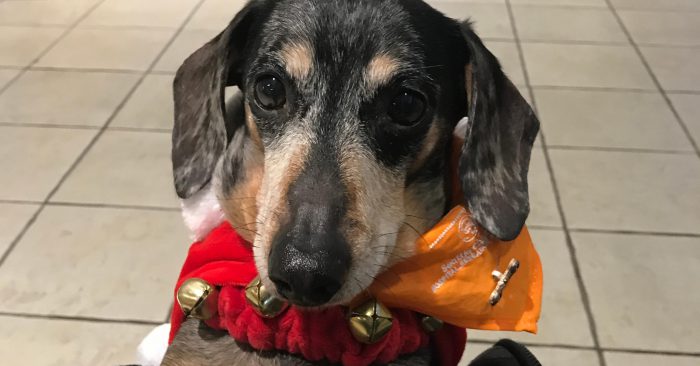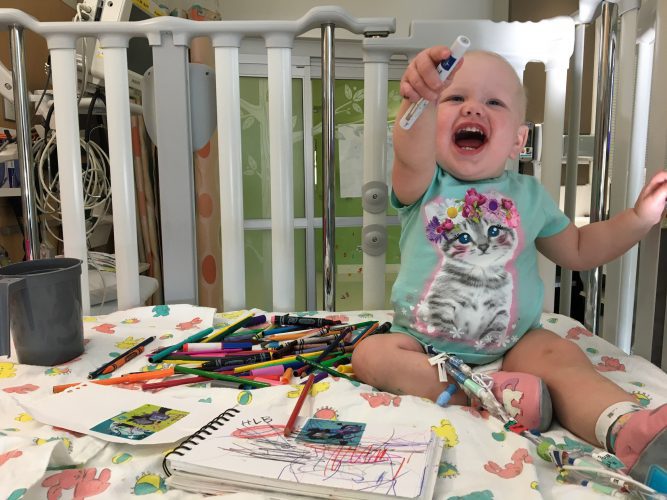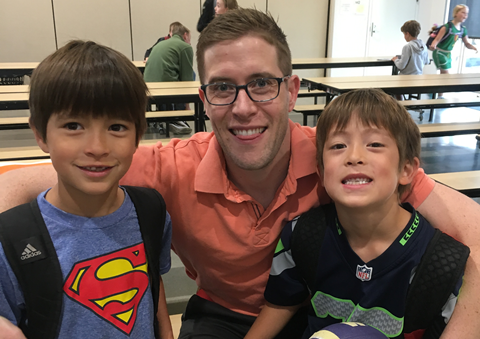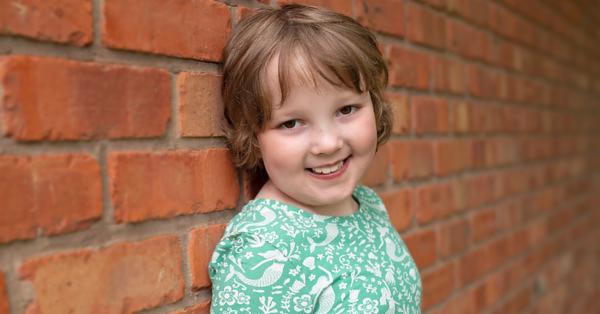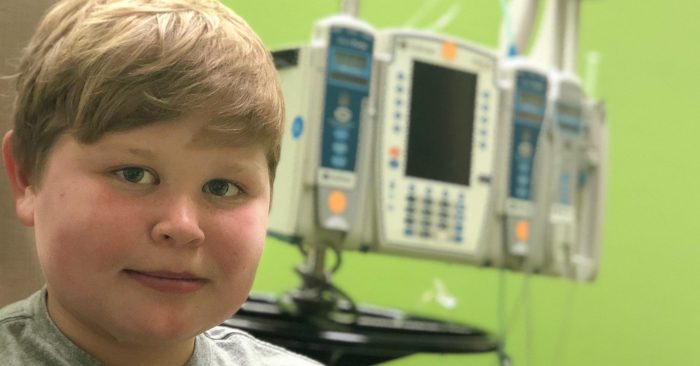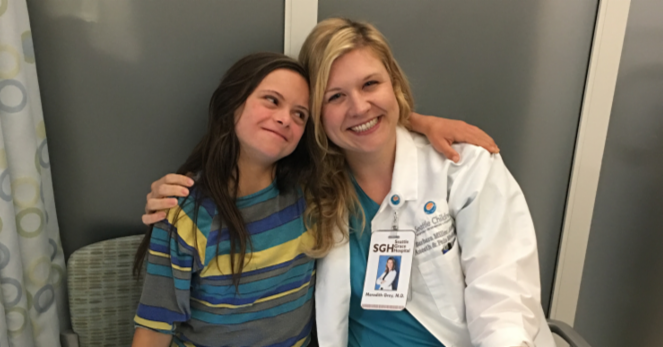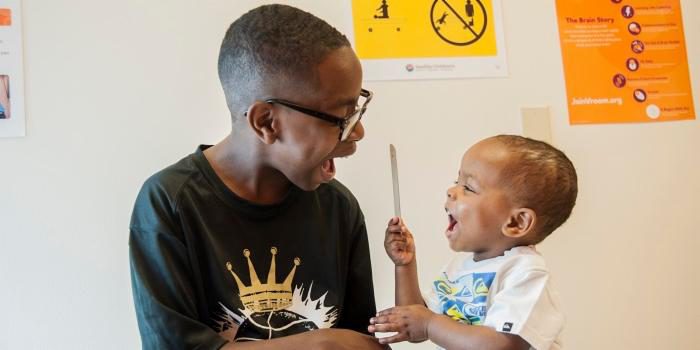Creativity is at the center of 11-year-old Carson Bryant’s life. “I would describe her as being imaginative,” her mother, Andrea Bryant, said. “She has a love for theater and dreams of being an illustrator someday.” In January 2018, Carson had to put her creative passions aside when she began experiencing symptoms that sparked concern for […]
In honor of Autism Awareness Month, On the Pulse shares a story about a mother with 3-year-old twin daughters who have autism and her showing of gratitude for the relentless care and support that the Seattle Children’s Autism Center staff has provided her family. Nataly Cuzcueta felt like a proud parent when she witnessed her […]
Amani Jackson and her identical twin sister, Amira, possess a rare bond that began in their mother’s womb. Up until the moment they were born, grasping on to one another, their bond remained unbroken. It wasn’t until surgeons noticed one of them wasn’t quite like the other, that they needed to part ways. “Although they […]
A few little jingles from a furry friend can go a long way during the holiday season at Seattle Children’s. Lee Roy, a 12-year-old miniature dachshund, can be seen trotting down the halls of the hospital in festive attire made complete with tiny bells that announce his delivery of warm cuddles to patients. “Lee Roy […]
Seattle Children’s doctors and researchers continue to believe chimeric antigen receptor (CAR) T-cell immunotherapy has the power to revolutionize pediatric cancer care. Over the past year, they have made tremendous progress with the promising therapy, which has given patients like Harper Beare, Erin Cross and Milton Wright a second chance at life. Seattle Children’s recently […]
As a pediatric dermatologist at Seattle Children’s, Dr. Markus Boos shares his experiences as both a doctor and father, and the compassion he strives to bring to his patients to help them find hope in times of struggle. I recently had a patient return to my clinic for a follow-up visit. One month prior, I […]
Each morning, 8-year-old Erin Cross springs out of bed excited to go to school. A third grader in Chester, England, she loves science and math, and imagines a future as a researcher making “potions” in a lab. She loves cracking jokes, rugby and playing make-believe games with her friends on the playground. For Erin, who […]
Gary Bradford was a healthy 2-year-old until 2009, when what first appeared as seasonal allergies developed into a much more serious health condition. After spending time outside in the pollen-filled air on a spring day, Gary’s face swelled and he developed a rash on his arm. Three weeks later, the symptoms became more severe as […]
Doctor appointments aren’t usually a fun experience for 17-year-old Savannah Miller who was born with Down syndrome. Usually, trips to the hospital are accompanied with a fair share of reluctance and anxiety. During a recent trip to Seattle Children’s, however, that all changed thanks to Lindsey Thomsen, a pediatric nurse practitioner in the pre-anesthesia clinic […]
Dr. Seok Bee Lim has been practicing pediatric dentistry at Seattle Children’s Odessa Brown Children’s Clinic (OBCC) in the Central District for nearly 37 years. Although the neighborhood around her has changed since she started her career there, the mission of OBCC and the passion she has for caring for her patients has remained steadfast. […]

